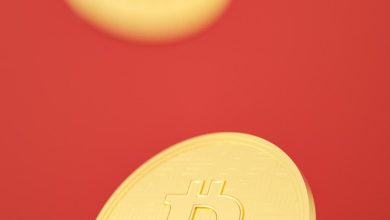Analysis of Decentralized Exchanges and Market Dynamics

- Understanding Decentralized Exchanges
- Exploring the Advantages of Decentralized Trading
- The Rise of Decentralized Exchanges in the Cryptocurrency Market
- Challenges Faced by Decentralized Exchanges
- The Impact of Regulation on Decentralized Exchanges
- Market Trends in Decentralized Trading Platforms
Understanding Decentralized Exchanges
Decentralized exchanges (DEX) operate without a central authority, allowing users to trade cryptocurrencies directly with one another. This peer-to-peer model eliminates the need for intermediaries and provides users with greater control over their funds.
One of the key advantages of decentralized exchanges is the increased security they offer. By removing the central point of failure that centralized exchanges present, DEXs reduce the risk of hacking and theft. Additionally, users retain ownership of their private keys, further enhancing security.
Decentralized exchanges also promote privacy and anonymity, as users do not need to undergo identity verification procedures to start trading. This feature appeals to users who prioritize confidentiality and seek to avoid sharing personal information.
Moreover, decentralized exchanges are known for their transparency. All transactions are recorded on a public blockchain, providing users with a clear view of the trading activity on the platform. This transparency helps build trust among users and fosters a more open and fair trading environment.
In conclusion, understanding decentralized exchanges is crucial for anyone looking to engage in cryptocurrency trading. By grasping the unique benefits they offer, users can make informed decisions about where to conduct their trades and take advantage of the security, privacy, and transparency that DEXs provide.
Exploring the Advantages of Decentralized Trading
Decentralized trading offers numerous advantages compared to centralized exchanges. One of the main benefits is the increased security and privacy that decentralized platforms provide. By eliminating the need for a central authority to hold users’ funds, decentralized exchanges reduce the risk of hacks and theft. Additionally, decentralized trading allows users to retain control of their private keys, giving them full ownership of their assets at all times.
Another advantage of decentralized trading is the enhanced transparency it offers. Transactions on decentralized exchanges are recorded on a public blockchain, making it easy for users to verify trades and track the movement of their funds. This transparency helps to build trust among users and fosters a more open and honest trading environment.
Decentralized trading also promotes greater market diversity and inclusivity. Unlike centralized exchanges that often have strict listing requirements, decentralized platforms allow anyone to list a new token or asset. This opens up trading opportunities for a wider range of projects and helps to support innovation in the blockchain space.
Furthermore, decentralized exchanges are resistant to censorship and government interference. Since there is no central authority controlling the platform, users can trade freely without worrying about their activities being monitored or restricted. This level of freedom is particularly important for users in regions with strict financial regulations or limited access to traditional banking services.
The Rise of Decentralized Exchanges in the Cryptocurrency Market
Decentralized exchanges (DEXs) have been gaining popularity in the cryptocurrency market due to their unique features and benefits. Unlike centralized exchanges, DEXs allow users to trade directly with each other without the need for a middleman. This decentralized approach provides users with greater control over their funds and eliminates the risk of hacks or security breaches that are common on centralized exchanges.
One of the main drivers behind the rise of DEXs is the growing concern over privacy and security in the cryptocurrency market. With DEXs, users do not need to deposit their funds onto the exchange, reducing the risk of losing their assets in the event of a hack. Additionally, DEXs do not require users to go through a lengthy verification process, allowing for greater anonymity when trading.
Another factor contributing to the popularity of DEXs is the increasing demand for liquidity across various cryptocurrency markets. DEXs offer a wide range of trading pairs and allow users to easily swap between different tokens, providing a more efficient way to access liquidity without relying on a centralized intermediary.
Overall, the rise of decentralized exchanges in the cryptocurrency market reflects a growing trend towards more secure, private, and efficient trading platforms. As the demand for decentralized services continues to grow, DEXs are likely to play an increasingly important role in shaping the future of the cryptocurrency market.
Challenges Faced by Decentralized Exchanges
Decentralized exchanges face several challenges that hinder their widespread adoption in the cryptocurrency market. One major issue is the lack of liquidity compared to centralized exchanges. This scarcity of liquidity makes it difficult for traders to execute large orders quickly and at favorable prices. Without sufficient trading volume, decentralized exchanges struggle to attract more users and maintain a competitive edge in the market.
Another challenge is the user experience on decentralized exchanges. Many users find the interface and trading process complex and confusing, especially for newcomers to the cryptocurrency space. This difficulty in navigating the platform can deter potential users from using decentralized exchanges, opting instead for more user-friendly centralized exchanges.
Security is also a significant concern for decentralized exchanges. Despite the emphasis on privacy and control over funds, decentralized exchanges are vulnerable to hacking and smart contract vulnerabilities. The lack of regulation and oversight in decentralized exchanges makes it challenging to recover lost funds or hold malicious actors accountable for their actions.
Additionally, the lack of customer support on decentralized exchanges can frustrate users who encounter issues with their trades or transactions. Without a centralized authority to turn to for help, users must rely on community forums or online resources for assistance, which can be unreliable and time-consuming.
Overall, while decentralized exchanges offer advantages such as increased privacy and control over funds, they still face significant challenges in terms of liquidity, user experience, security, and customer support. Addressing these obstacles will be crucial for the continued growth and success of decentralized exchanges in the cryptocurrency market.
The Impact of Regulation on Decentralized Exchanges
The impact of regulation on decentralized exchanges can be significant in shaping their operations and market dynamics. While decentralized exchanges offer increased privacy, security, and control over funds compared to centralized exchanges, regulatory scrutiny can pose challenges.
Regulation can affect decentralized exchanges in various ways, including compliance requirements, restrictions on certain types of trading activities, and potential barriers to entry for new projects. This can lead to a more cautious approach from users and developers, impacting the overall liquidity and growth of the decentralized exchange ecosystem.
Despite these challenges, some argue that regulatory oversight can bring legitimacy and stability to decentralized exchanges, attracting institutional investors and mainstream adoption. Finding a balance between innovation and compliance is crucial for the long-term success of decentralized exchanges in a rapidly evolving regulatory landscape.
Overall, the impact of regulation on decentralized exchanges is a complex and evolving issue that requires careful consideration from all stakeholders. By navigating regulatory challenges effectively, decentralized exchanges can continue to innovate and provide a decentralized alternative to traditional financial systems.
Market Trends in Decentralized Trading Platforms
In recent years, there has been a notable surge in the popularity of decentralized trading platforms. These platforms offer users the ability to trade digital assets without relying on a central authority, making them a popular choice for those looking to maintain control over their assets.
One of the key market trends in decentralized trading platforms is the increasing number of users flocking to these platforms. This can be attributed to the growing interest in decentralized finance (DeFi) and the desire for more secure and transparent trading options. As a result, decentralized exchanges have seen a significant increase in trading volume and liquidity.
Another trend in the market is the rise of automated market makers (AMMs) on decentralized platforms. AMMs use algorithms to facilitate trading by allowing users to trade against a pool of assets rather than matching orders with other users. This has streamlined the trading process and increased efficiency on decentralized exchanges.
Additionally, interoperability between different decentralized platforms has become a crucial trend in the market. Users are looking for seamless experiences when trading across multiple platforms, leading to the development of cross-chain solutions and bridges that allow assets to move freely between different blockchains.
Overall, the market trends in decentralized trading platforms point towards a growing demand for more secure, efficient, and user-friendly trading options. As the DeFi space continues to evolve, we can expect to see further innovations in decentralized exchange technology that cater to the needs of a diverse range of users.



